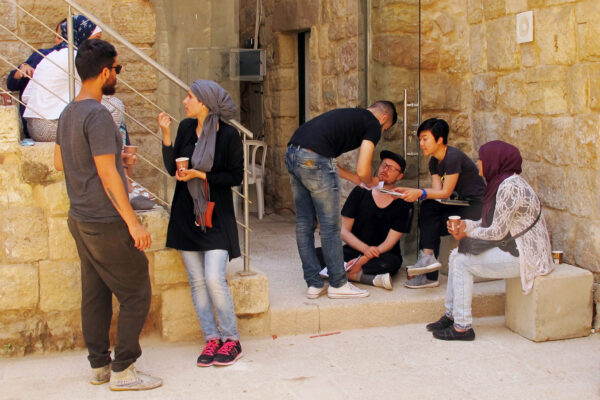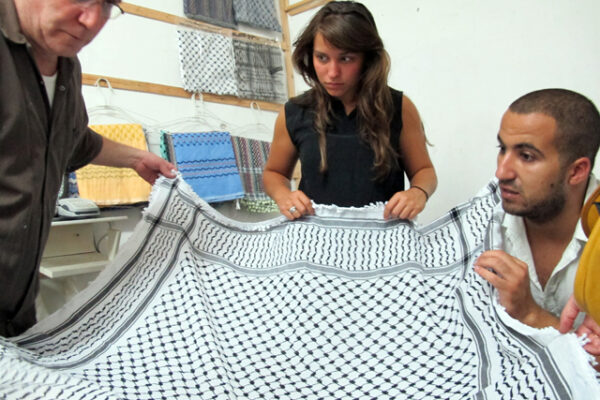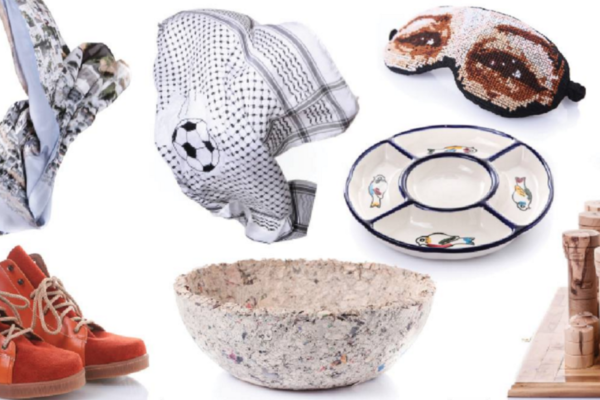Disarming Design from Palestine is an inclusive design label that presents useful products from Palestine. The goods are designed by Palestinian and international designers and made in Palestine by local producers and artisans. During yearly ‘create-shops’, new useful products are developed out of existing production processes. The collection is presented and items are sold locally and internationally through exhibitions, presentations, mobile shops, and a webshop.
Disarming Design from Palestine focuses on the development of local design and production capacity through creative processes. By stimulating interdisciplinary working relationships, new models of artistic practices and handcrafts are empowered. At large, the products spread alternative narratives about contemporary Palestine and reflect upon the function of creative practices in situations of conflict. In this project, art and design are deployed as powerful tools that allow serious discussions within a community about the political, social, and cultural realities.
The aim of the create-shop is to develop useful products that reflect upon Palestinian reality and can be produced locally. The create-shop is a collaborative process with a high emphasis on creativity, collaboration, production, and quality. Participants experiment and develop ideas collectively, engage in discussions, and are introduced to different Palestinian craft workshops.
The Lutfia Rabbani Foundation was delighted to support the 2016 create-shop hosted in the workshop space at Hosh Qandah with guest lectures, screenings, visits to a variety of Palestinian artisans and workshops in and around Ramallah, a field trip to the West Bank, some collective lunches and other relevant activities. Each participant was requested to collaborate with the local producers to develop prototypes for his/her designs. Participants consisted of 9 contemporary Palestinian designers, artists, and students in addition to four international master students from the Sandberg Instituut Amsterdam with an interest in crafts and production, who were able to rethink products from a conceptual approach.





